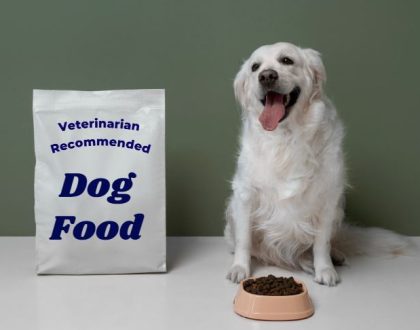
the scientific study of pet nutrition by veterinary nutrition specialists and experts.
Cooking Up Trouble: Common Home Cooking Mistakes

Pet owners make the decision to feed their pet a home-cooked diet for many reasons including pet health problems, distrust of the commercial pet food industry, the belief that home-cooked food is healthier, or a desire to use or avoid certain ingredients. The reality is that feeding a home-cooked diet is often significantly more expensive in time and money than feeding a good quality commercial diet, and there is no evidence that feeding a home-cooked diet provides nutritional or health benefits for most pets when compared to commercial diets. Creating and maintaining a nutritionally complete home-cooked diet can be challenging and many pet owners inadvertently make mistakes that could lead to their pet not getting adequate nutrition. If you choose to feed your pet a homemade diet, it is important to watch out for these common errors.
Substituting ingredients/supplements without checking with the nutritionist first
This is perhaps the biggest problem board-certified veterinary nutritionists encounter when formulating nutritionally complete home-cooked diets. Tufts nutritionists did a study to evaluate our clients’ experiences and ability to follow home-cooked diet recipes for dogs formulated by the Nutrition Service. We found that very few owners (only 13%) were still feeding the original nutritionally balanced diet recipe. And almost all of these changes to the recipe were made without consulting us for advice. Interestingly, when these pet owners were specifically asked whether they had made any changes to their recipe since our original recommendations, 62% of owners answered that they had not but actually did make changes. We discovered the discrepancies only when comparing their current reported diet to the diet recipe that we had originally made. The reason that following the diet recipe exactly is so important is that each ingredient and its preparation method are critical for the unique nutrient profile of the home-cooked diet. Substituting ingredients, even something as simple as changing brands if your recipe specifies a specific brand, may dramatically alter the nutritional profile of the diet and make it deficient in important nutrients.
Using an internet or book recipe
Home-cooked diets found on websites and in books (even ones written by veterinarians) more often than not are vague, out-of-date, and nutritionally deficient. One study that evaluated recipes for dogs found that only 9/200 recipes met the minimum nutrient requirements for commercial pet foods! Some red flags include recipes that allow substitution of ingredients (e.g. feed 2 cups of chicken or beef or lamb) that may vary dramatically in nutrients and calories, include no vitamin and mineral supplements, or include vague supplement recommendations such as “a human multivitamin/mineral tablet”. Work with a Board-Certified Veterinary Nutritionist® to ensure that your recipe is nutritionally appropriate for your pet.
Feeding pregnant/nursing adults or growing puppies and kittens a home-cooked diet
Pregnancy, nursing, and growth are the most nutritionally demanding times in an animal’s life. If these animals are fed diets that are too low in nutrients then serious, even life-threatening health conditions can result. Without careful formulated by a Board-Certified Veterinary Nutritionist,® home-cooked diets can easily be deficient in essential nutrients, it is no big surprise that they are the major cause of serious nutrition-related health problems in puppies and kittens fed home-cooked diets. However, even carefully formulated diets do not account for bioavailability issues or interaction between nutrients, so problems can still arise. Because of higher needs for many nutrients, narrower margins of error, and the potential risk of lifelong repercussions, we strongly discourage feeding home-cooked diets to growing, pregnant, or nursing animals.
This post was written in conjunction with veterinary student, Sasha Santiago.
Stockman, J., et al. (2013). “Evaluation of recipes of home-prepared maintenance diets for dogs.” Journal of the American Veterinary Medical Association 242(11): 1500-1505.
Want to read more information on feeding your pet?
Subscribe to always know when we add new material!
Recommended Posts

Can Diet Help With My Dog’s Seizures?
January 18, 2024

The Most Popular Holiday Foods…That Your Pet Should Avoid!
December 08, 2023

Veterinarian Recommended Pet Foods: What You Need to Know
November 05, 2023

